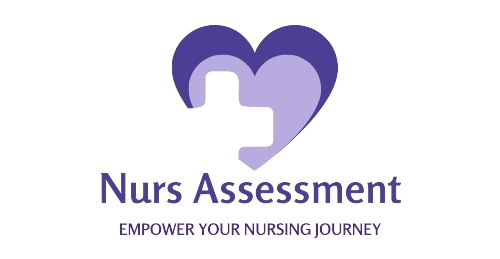Asthma is a chronic inflammatory disease of the airways characterized by alterations in the normal airway function, presenting clinically with episodic wheezing, chest tightness, shortness of breath, and cough. All these symptoms become worse at night or in the early morning. The condition can strike at any age, though it is one of the most chronic diseases affecting people all around the world.
In the context of nursing care, knowing how to effectively diagnose and manage asthma is important for optimal patient outcome and quality of life. That’s why in this article we will discuss the role of nursing diagnosis in the management of asthma, assessment techniques, intervention measures, collaborative approaches, and the importance of further evaluation to provide best care to patients suffering from asthma.
There is no doubt that a nursing care plan for asthma plays a vital role to enhance the life quality of the patients. Asthma is a chronic respiratory condition causing the airways to become inflamed and narrow, making breathing very difficult. All these things cause wheezing, coughing, and patients search for an inhaler to get some relief.
Role of Nursing Diagnosis in Asthma Management
Nursing diagnosis provides a foundation for constructing a whole care plan. It depends on assessment of symptoms and medical reports of patients. All this enables nurses to make specific individualized nursing care plan for asthma to help patients breathe easily.
Common Asthma Nursing Diagnoses in Patients
Asthma patients may have nursing diagnoses of “Ineffective Airway Clearance” related to the mucus plugs, those trouble creating things that don’t appear to do much, but stop the air!. Another diagnosis is “Impaired Gas Exchange” related to the oxygen and carbon dioxide playing hide-and-seek in the lungs of patients. These two most helpful diagnoses are helpful in personalizing a care plan for asthma attacks.
- Physical Assessment of Asthma Patients
Nurses, when assessing asthma patients, are listening to your chest like there is a secret conversation going on between your airways. They note your breathing patterns, listen for wheezing cues, and keep an eye out for any red flags that could be causing those asthma attacks.
- Diagnostic Tests for Diagnosing Asthma
Furthermore, tests, such as spirometry and peak flow measurements, blow into a tube like a birthday candle, help nurses get to the bottom of your breathing woes. The information derived from these findings shows the steps nurses will take to confirm asthma diagnosis and fine-tune the treatment plan for smoother breathing.

Nursing Interventions & Care Planning
Nurses after providing nursing diagnosis introduce interventions to achieve desired patient outcomes. Nursing care plans include both pharmacology and educating patients as well.
- Medication Management
The most important point about asthma is that it needs to be well controlled pharmacologically. One of the things nurses can do for their patients is to teach them how to use their inhalers. Also, nurses should ensure that they take medications as they are supposed to, and monitor their responses.
A key component of the job done by the nurse towards a patient diagnosed with asthma is the checking of response to medications. Afterwards communicating with the prescriber to determine if treatments should be changed or maintained.
- Teaching & Empowering
Furthermore, after nursing diagnosis for asthma the educating patients about asthma triggers, symptoms, and self-management techniques puts their condition back into their hands. Nurses can help the patient with a personal asthma action plan, teach breathing methods, and give lifestyle advice.
Additionally, the nurses assist the patient even better at handling the condition of asthma. On the other hand, the nurse supports the individual in living a healthier life despite being diagnosed with asthma, since the patient will be educated and empowered.
Collaborative Care & Interdisciplinary Approach
There is no doubt that after nursing diagnosis the collaboration of healthcare professionals play a significant role in crafting a nursing care plan for bronchial asthma. Interprofessional collaboration is an important component of asthma management involving health professionals.
Moreover, this involves coordination of care, observation of the patient, and alteration of the treatment plans with respect to the patient. A nurse collaborates with other health professionals such as respiratory therapists and physicians.
That’s why through the proper communication and coordination of care with other health professionals, nurses are able to provide both holistic and comprehensive care for asthma patients.
Involvement of Support System
Furthermore, it can be effective to include the patient’s support system, that is, family members, caregivers, and community resources, in a nursing diagnosis for asthma management. Nurses educate and involve these support systems to help patients understand asthma, and recognize symptoms. In addition to this, the nurses try their best to provide a strong support system that fosters well-being and a high-quality lifestyle for asthma patients.
Evaluation & Asthma Nursing Care Diagnosis
The problems that patients with asthma face are a real challenge. No doubt assessing and monitoring care continuously in asthma are important. Nurses take account of the response given by the patient to the treatment, the symptoms that come up, and evaluate the progress being made on a patient.
Therefore, nurses ensure people with asthma have tailored care that is effective in actualizing the health goals of an individual. No doubt, it is done by continually assessing and amending the care plan in response to the variable needs of the patient.

The management of asthma is evolving. Also, nurses play a pivotal role in emerging trends and best practices. From telemedicine and remote monitoring to precision medicine and advanced treatments, nurses remain at the forefront of the integration of new approaches into asthma care.
Indeed, nurses are able to continue their enhancements in the quality of care of people living with asthma while they shape the future of asthma management.
Conclusion & Future Directions
We can’t deny the fact that an effective nursing diagnosis is important in the care of an asthmatic individual. Learning what makes unique needs and the challenges facing individuals with asthma places the nurse in the position of arranging interventions for self-management strategies, either personally or within the multidisciplinary team to provide efficient care. Nurses, being at the forefront of the continued evolution in asthma care, also adapt and adopt these trends further toward even better outcomes for asthma populations and thereby contribute to high-quality care for people with asthma.
FAQs
- What are the top 3 nursing priorities for asthma?
- Breathing pattern improvement
- Patient airways maintenance and airways inflammation reduction
- Pharmacological support and medical administration
- What are five nursing diagnoses?
- Risk nursing diagnosis
- Syndrome diagnosis
- Problem-focused nursing diagnosis
- Possible nursing diagnosis
- What are five nursing priorities?
- Assessment
- Diagnosis
- Planning
- Implementation
- Evaluation


